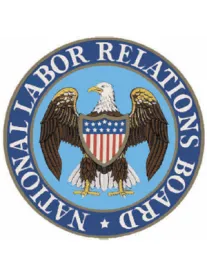An Oct. 11, decision by an NLRB Administrative Law Judge (ALJ) reinforces several important lessons employers should heed when employing union and non-union workers. In Viejas Band of Komeyaay Indians d/b/a Viejas Casino & Resort, Case No. 21-CA-166290, the ALJ first found that the agency did indeed have jurisdiction over the Viejas Casino & Resort run by the Viejas Band of Kumeyaay Indians. The ALJ applied the board’s standard articulated in San Manuel Indiana Bingo & Casino, 341 NLRB 1055 (2004) affd. 475 F.3d 1306 (D.C. Cir. 2007) and held the respondents’ casino operation was subject to jurisdiction under the National Labor Relations Act (NLRA).
Having dispensed with the respondent’s jurisdictional defense, the ALJ next found that the employers’ payment of an end-of-year bonus consistent with past practice (and despite no mention of such payment in a recently negotiated collective bargaining agreement) did not discriminate in violation of Section 8(a)(3) of the NLRA.
The discrimination violation allegation was that the respondent had paid union employees a lesser bonus than non-union employees. The respondent did so because negotiated wage increases for union employees exceeded increases granted to non-union employees. The respondent argued that was in total the lesser amounts for union employees equalized total payments (wages and bonus) for non-union employees, i.e. no discrimination.
The ALJ found no discrimination under Wright Line because she found there was no independent evidence that the respondent was motivated by an anti-union purpose in paying the lesser amount. The ALJ rejected the argument that the lesser amounts paid to unit employees conveyed that such employees were less valuable based on their represented status. Rather, the respondent tied the lesser amount to the higher wage increase earlier received by union represented employees. This, however, did not end the ALJ’s discrimination analysis.
The ALJ also analyzed whether the paying of the lesser amount to union employees constituted inherently destructive conduct under Great Dane Trailers, and thus supported a discrimination theory. She concluded it did not, because any harm due to the lower payment to union employees was viewed as slight because of the higher bargained-for raise amount,
These discrimination findings, however, did not get the respondent off the hook. The ALJ also found that the employer failed to give the union adequate notice of the bonus payment and therefore failed to provide the union an opportunity to bargain over it. Due to this failure, the ALJ found respondent violated Section 8(a)(5) of the act and imposed a make-whole remedy.
This case is another reminder that employers must carefully strategize changes in a bargained-for workplace to avoid any number of legal theories a union or the NLRB will allege to impose.




 />i
/>i

